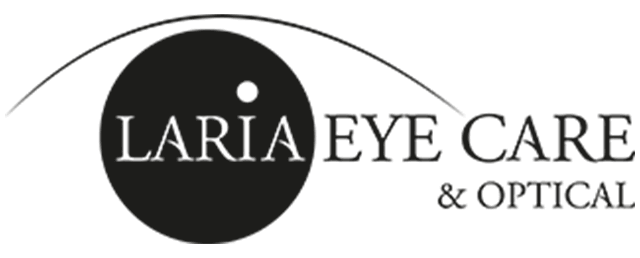Can Nutrition Help My Eyes? An Interview with Dr. Laria
Q. Can vitamins really help my eyesight?
Research shows that it is important to make sure you get certain vitamins that are important for eye functions. In particular, it is important as your eyes age to make sure you eat well to protect your eyes from age related illness.
vitamins that are important for eye functions. In particular, it is important as your eyes age to make sure you eat well to protect your eyes from age related illness.
Q. Which eye diseases can be helped by vitamins or supplements?
Macular Degeneration is the number one eye disease that can be helped with supplements. Other diseases and conditions are cataracts, night blindness and dry eyes.
Q. Which vitamins are important for my eyes?
There are many vitamins that are important. Here is a short list, and I have included what foods contain these vitamins.
Beta Carotene – this is the vitamin in carrots that we all know helps our eyes. When you take beta carotene with zinc and vitamins C and E, beta-carotene may reduce the progression of macular degeneration. Beta Carotene is found in carrots, sweet potatoes, spinach, kale, and butternut squash.
Bioflavenoids may protect against cataracts and macular degeneration, and are found in tea, red wine, citrus fruits, bilberries, blueberries, cherries, legumes, and soy products.
Lutein and Zeaxanthin may prevent cataracts and macular degeneration, and is found in Spinach, kale, turnip greens, collard greens, squash.
Omega-3 Fatty Acids may help prevent macular degeneration (AMD) and dry eyes, and is found in cold-water fish such as salmon, mackerel and herring, freshly ground flaxseeds and walnuts.
Selenium, when combined with carotenoids and vitamins C and E, may reduce risk of advanced AMD. Selenium is found in seafood, brazil nuts, enriched noodles and brown rice.
Vitamin A may protect against night blindness and dry eyes, and is found in Beef or chicken liver; eggs, butter, and milk.
Vitamin C may reduce the risk of cataracts and macular degeneration, and is found in sweet peppers (red or green), kale, strawberries, broccoli, oranges, and cantaloupe.
Vitamin D may reduce the risk of macular degeneration, and is found in salmon, sardines, mackerel, milk, and orange juice fortified with vitamin D.
Vitamin E, when combined with carotenoids and vitamin C, may reduce the risk of advanced AMD, and is found in almonds, sunflower seeds, and hazelnuts.
Zinc helps vitamin A reduce the risk of night blindness; and may play a role in reducing risk of advanced AMD. Zinc is found in oysters, beef, Dungeness crab, and turkey (dark meat).
Q. Can you give me some quick ideas of how I can incorporate eye-healthy foods into my everyday diet?
Start with spinach and kale, antioxidants that protect the eye from damage from sunlight, smoke and air pollution. They are loaded with two great antioxidants, lutein and zeaxanthin. These vitamins get into the lens and retina of the eye, and may absorb damaging visible light. Try eating a cooked 10-ounce block of frozen spinach during the week by adding it to different foods. Eat fresh kiwis and grapes as snacks. Add vitamin C to your diet, another great antioxidant, by eating a grapefruit or orange every day with breakfast. Strawberries and green peppers are another source of vitamin C and make great snacks. To load up on vitamin E, which keeps healthy tissue strong, have some sunflower seed, almonds or pecans for a snack, or add a tablespoon of wheat germ oil to your salad.
Q. Do you recommend that patients take supplements for eye health? And if so, which patients?
All patients can benefit from taking a good quality eye care supplement. I particularly recommend eye supplements to all my patients over 30 years of age.
Make Dr. Laria’s famous smoothie recipe for eye nutrition
